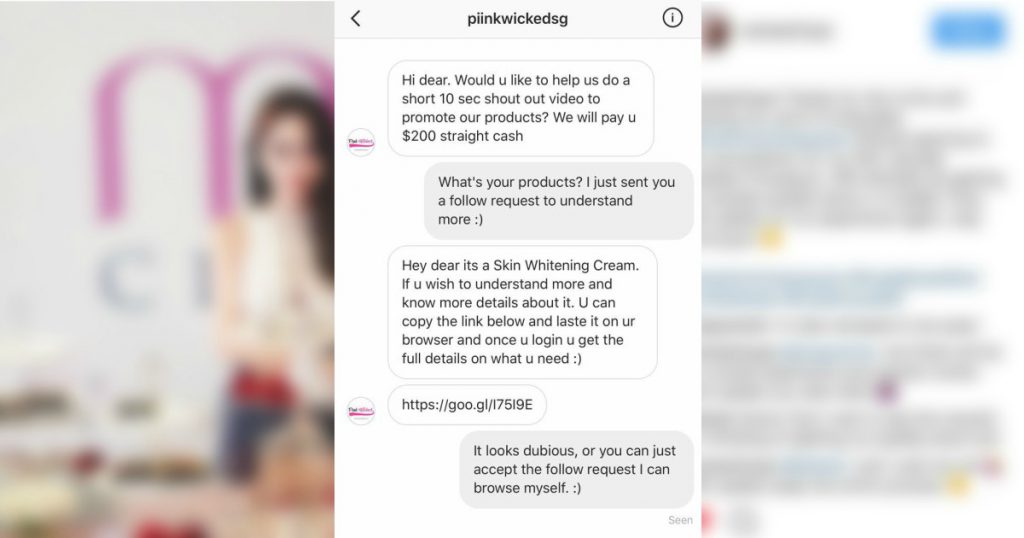Although riddled with criticism, the Instagram scene in Singapore is booming, not just as part of the ‘sharing society’, but also as a career.
While not everyone declares it (see: the Fyre fiasco), many posts are actually sponsored i.e. partnering with brands to feature their products in a “advertisement”.
Having ditched traditional advert types, companies are increasing invested in Instagram, and for good reason.
In Singapore alone, almost 50% of youths aged 16-24 trustthe word of their online role models more than traditional ads. In fact, influencer marketing here is highly lucrative, with an average return of investment of $6.86 per dollar spent.
However, the scene is also highly competitive, with over 12,000 individuals (from one agency alone). In order to make money, these personalities sometimes can’t afford to be too picky about the clients they work with, and therein lies the problem.
Scammers are like cockroaches – they are everywhere, and Instagram isn’t spared.
‘Sponsored Post’ Scam
Yesterday, we were alerted to a possible phishing scam experienced by a local social media personality. And we managed to get the shots of the conversation as seen below.

In case you were wondering what the site links to, here’s a screenshot of it.

Whoever was behind it wasn’t particularly helpful with responses, insisting the only way to view products was through the link. To make it look more legit, they also provided ‘evidence’ of previous partners.




It’s pretty obvious that this was a scam. However, the problem lies in how someone might not think much about the Google log-in page.
After all, it’s a Google site on Facebook’s platform, both sites credible enough to successfully bait someone.
Tech-Savviness Is Something We Still Fail At
In the larger perspective, our supposedly ‘tech-savvy’ society is a double-edge sword.
We know how to better leverage on technology to make our lives better. Simultaneously, the digital tools empower scammers, and some of them can appear dangerously safe.
Just look at what happened with yesterday’s Google Docs phishing scam, which successful reeled in well-educated individuals.
The “highly sophisticated” campaign was even able to bypass two-factor authentication, making that added security many of us rely on null.
Given how fast scams are evolving, it is near impossible to have a foolproof safeguard. It is important however, to always pay attention to what you’re clicking.
Featured Image Credit: @vonnechuaa Instagram










